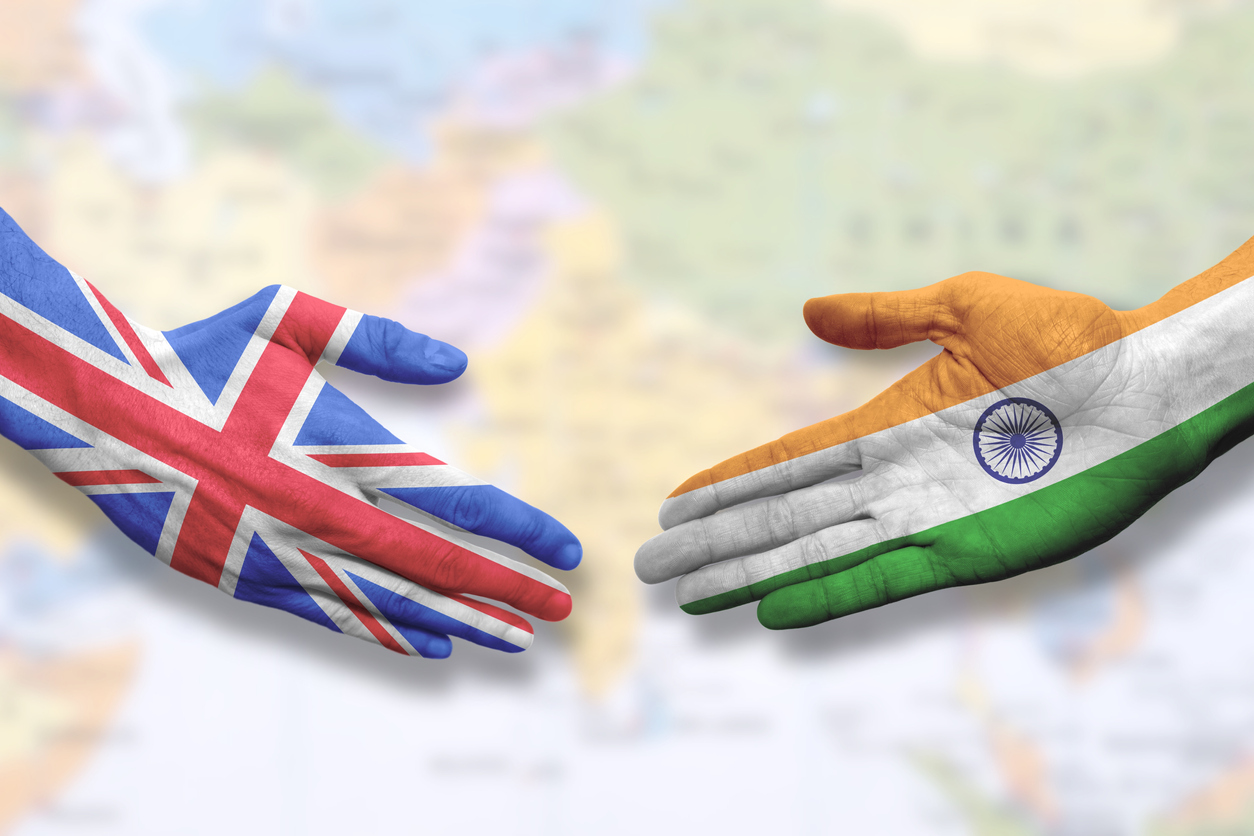
July 21, 2025
The agreement will support Indian MSMEs aiming to enter the UK markets and strengthen intellectual property protections for the creative sectors
PHDCCI will send a business delegation to the UK in September to explore commercial opportunities opened by the FTA
Key sectors, including textiles, technology, pharmaceuticals, and toys, are projected to gain significantly from reduced trade barriers
The services sector is set to benefit from easier cross-border movement of professionals and clearer social security frameworks

The India-UK Free Trade Agreement (FTA) is expected to increase bilateral trade by £25.5 billion annually, setting the stage for deeper economic collaboration across sectors, according to a senior UK trade official.
Anna Shotbolt, Deputy Trade Commissioner for South Asia at the British High Commission, stated that the deal would eliminate tariffs on 90% of traded goods, delivering tangible benefits across services, manufacturing, and intellectual property.
Speaking at an interactive session organised by the PHD Chamber of Commerce and Industry (PHDCCI), Shotbolt noted that while tariff cuts are essential, the agreement also strengthens copyright protections for creative sectors and enhances clarity for workers through the Double Taxation Avoidance Convention.
The FTA, which has been under negotiation since 2022, aims to reposition India and the UK as strategic partners in an evolving global economy. Shotbolt emphasised that the deal is not limited to trade—it also supports more transparent and secure cross-border working conditions.
Ranjeet Mehta, CEO and Secretary General of PHDCCI, emphasised the significance of the agreement for Indian businesses, particularly MSMEs. He pointed out that India’s economy has moved from being the fifth-largest to the fourth-largest during the negotiations, reinforcing the country’s rising global influence.
He further added that India’s commitment to achieving net zero by 2070 will require MSMEs to be sustainable and technologically forward. The UK market, he said, presents a substantial opportunity for these businesses. To explore this potential, PHDCCI will send a business delegation to the UK in September.
C R Rai, Co-Chair of PHDCCI’s Textiles Committee, called the FTA a “transformative opportunity” for India’s textiles industry. He said the deal can boost exports, generate employment, and empower SMEs. Rai emphasised the importance of coordination among government bodies, industry, and states to convert this opportunity into tangible outcomes.
Industry leaders stressed the need for synergies that extend beyond trade. Kishore Jayaraman, Global Board Director at the UK India Business Council, remarked that the FTA signals “the beginning of a new era” in bilateral economic ties, where both nations can contribute to each other’s growth.
Ajay Aggarwal, President of the Toy Association of India, said India’s toy industry—now manufacturing 80% of its products domestically—would benefit from tariff reductions and enhanced access to UK consumers.
The services sector is also projected to gain from the FTA. Provisions related to social security and improved ease of doing business are expected to support Indian professionals seeking opportunities in the UK.
Naveen Seth, Deputy Secretary General of PHDCCI, reiterated the chamber’s commitment to nurturing global partnerships. As PHDCCI celebrates 120 years of its existence, he said the organisation remains focused on fostering dialogue that enhances India’s global economic footprint.
The trade agreement is designed to facilitate cross-border investments and improve market access, giving Indian firms a platform to scale up in one of the world’s most mature markets. With India’s retail sector valued at US$1 trillion and the UK’s at around US$386.3 billion, stakeholders see vast untapped potential in the bilateral relationship.
T S Vishwanath, Chairman of VeK Policy Advisory, concluded that the FTA is about more than trade. It presents an opportunity to develop bilateral capabilities and robust value chains that can empower MSMEs and enhance global competitiveness.
Source: Business Standard